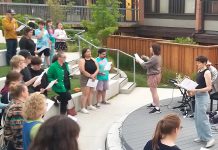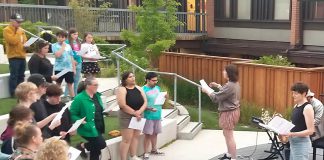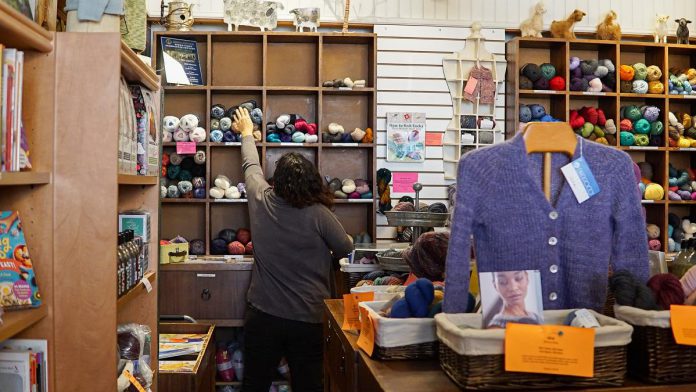
Female entrepreneurs in small-town or rural Ontario who are looking for a post-pandemic reset have a formidable ally in Claire Bouvier.
The Kingston-based influencer, serial entrepreneur, business consultant, and founder of the online-based FEiST (Female Entrepreneurs in Small Towns) mentorship series is on a mission to empower all women to be the best they can be at running their respective businesses.
That said, Bouvier’s primary focus — and the subject of an upcoming free two-part workshop hosted by the Peterborough & the Kawarthas Economic Development (PKED) Business Advisory Centre — is fixed firmly on the unique challenges that rural female entrepreneurs encounter launching or growing their businesses.
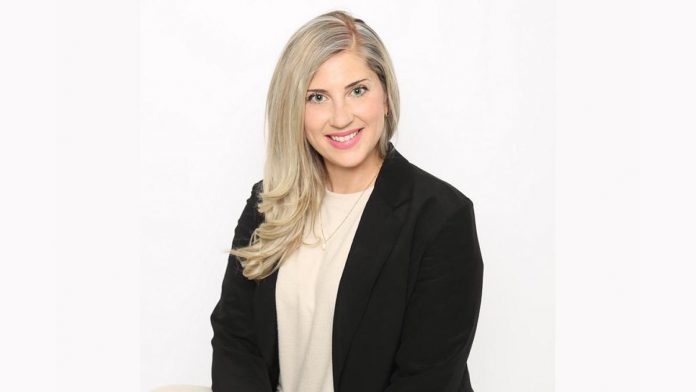
Sponsored by Community Futures Peterborough, “6 Ways To Successfully Reach Your Customers: A Workshop Series For Rural Female Entrepreneurs” takes place on Zoom on Thursday, March 24th and again on Thursday, March 31th from 1 to 3 p.m. each day. You can register for the free workshop at PKED’s new website at investptbo.ca.
For Bouvier, the workshop presents yet another opportunity to do what she does best and is most passionate about: empowering rural female entrepreneurs to overcome any limitations imposed by where they live to attain their full personal and professional potential.
“Urban entrepreneurs have convenience, opportunities, a bigger network, and more resources all at their fingertips,” says Bouvier. “A lot of the rural women I’ve worked with don’t even have proper internet service.”
According to Bouvier, her workshop will help female entrepreneurs understand where their limits are, what their struggles are, and what’s preventing them from reaching their customers.
“Many rural communities present limitations on services such as the internet, transportation, and communications,” she says. “You can look at that as a disadvantage, or you can look at new ways to be resourceful and tap into unique ways of connecting with your audience.”
At the end of the day, a back-to-basics approach in terms of creating new relationships and nurturing existing ones is key, says Bouvier.
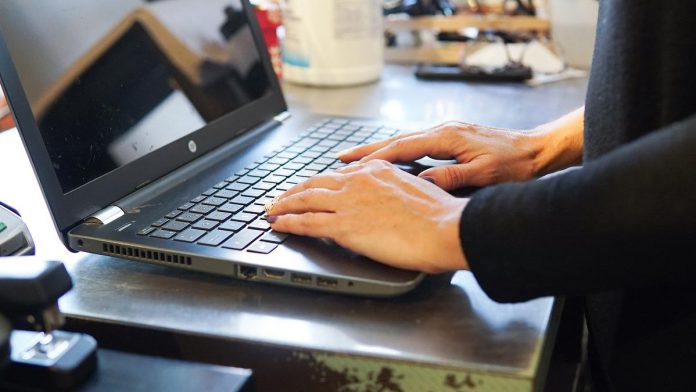
“We have to remind ourselves of what has worked,” Bouvier explains. “It’s not a lost art: speaking to someone, setting up a relationship, having a coffee date, and building one-on-one relationships.”
“We’ve been so bombarded by everyone telling us if we only use this app, it’s going to change our customer relationships — but really it comes down to networking and building your community and then leveraging your community. It’s all about building real connections with individuals that are like-minded and you can help support one another.”
PKED’s decision to reach out to Bouvier to facilitate this workshop grew out of a sense that rural female entrepreneurs “feel left out,” according to PKED Entrepreneurship Officers Hillary Manion and Madeleine Hurrell, who both have extensive experience working with urban and rural female entrepreneurs.
“The usual set of resources available — whether that’s professional networking, professional development, or the small business ecosystem that we’re a part of — tends to be more prevalent in urban areas,” Manion says. “They don’t always have the same presence in rural areas. Rural entrepreneurs either don’t know about the resources that are available, or they don’t feel they’re easily accessible.”
“We have conversations with food-based and farm-based businesses that wouldn’t necessarily call themselves a business yet they are, in every sense of the word, a business. But because their business model is different from someone on a main street in a larger city, they may consider themselves different. That’s really the focus of this workshop: to help those businesses get the word out about themselves, and understand how marketing can be different in a rural community or a small town versus an urban setting.”
Hurrell, meanwhile, touches on another barrier that every entrepreneur has faced to some degree over the past two years: the pandemic and related restrictions that took away traditional networking and marketing opportunities. She says this has disproportionately affected new female entrepreneurs, especially women with children who have had to manage home schooling and child care during lockdowns while launching or running their business.
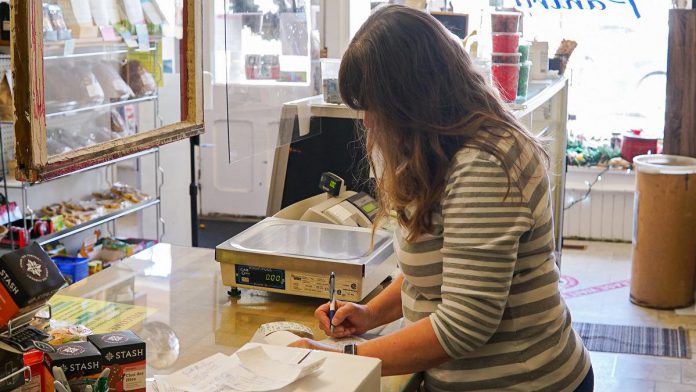
“It was important for us to target that group for this workshop,” Hurrell says. “Our goal behind this is that connectivity piece. From our perspective, a new start-up will get a lot from this workshop because of the sharing. Not only will they learn from Claire, but they’ll get a lot from the more experienced or seasoned entrepreneurs who can share things they learned through experience. That’s always really valuable.”
Bouvier agrees the pandemic presented barriers for female entrepreneurs, but is quick to note it has also presented an opportunity to return to the roots of marketing.
“We’ve lost the traditional sense of what marketing is,” Bouvier points out. “This workshop is going to get people to focus on building the right relationships by looking at the power of word of mouth, how to do that properly, and how to create strong and strategic relationships and collaborations that are ultimately going to be much more powerful than throwing money at marketing, such as by buying Facebook ads.”
According to Bouvier, building these strong and strategic relationships is not only key for overcoming the isolation female entrepreneurs in rural communities may have faced during the pandemic, but for growing their business as the economy opens back up.
“Post-pandemic, the road is opening up again,” she says. “There are opportunities for growth going into the summer. It’s about using our time intelligently and intentionally, by being really intentional about the way we build relationships and by aligning our businesses and the things that we do to ultimately build a stronger community of the people we help serve. Create better service, a better story, and a better relationship with customers and, potentially, other businesses you can align with.”
For entrepreneurship officers Hillary Manion and Madeleine Hurrell, the workshop also provides an opportunity to connect with female entrepreneurs who may not be aware of all the services PKED offers.
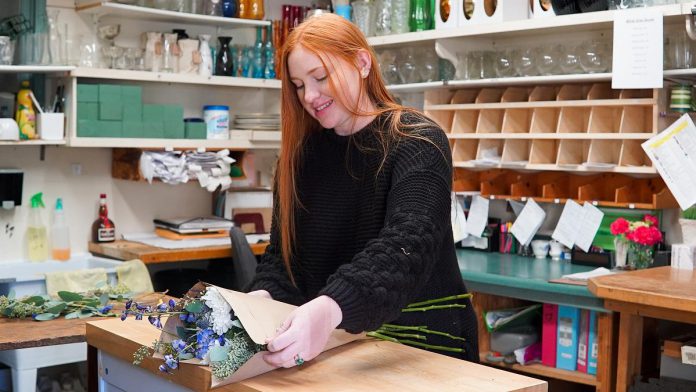
“Maddie and I are creating a structured follow-up plan for the workshop attendees,” Manion explains. “Participants won’t only have the feedback and takeaways from the actual two days — they’re going to have a support system afterwards.”
“We’re setting up a chat room for attendees,” she adds. “They’ll have full access to both Maddie and I, along with all of the resources offered through the PKED’s Business Advisory Centre. There are sustainable and tangible takeaways for the workshop participants.”
As for Bouvier’s workshop, Hurrell says participants will be exposed to the entrepreneurial wisdom and over-the-top passion of “a dynamic and fantastic speaker.”
“That’s super important when you’re doing something virtually,” Hurrell notes. “I would tell the audience to sit down and buckle in.”
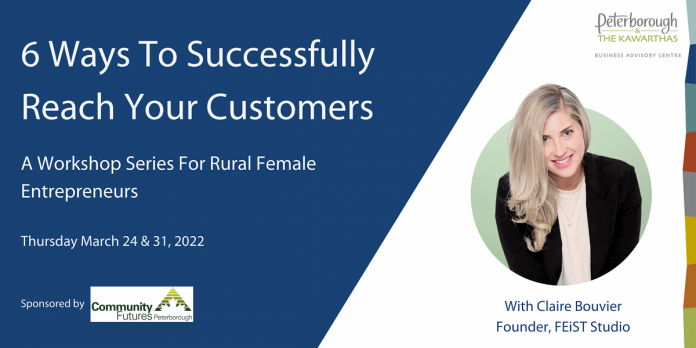
For her part, Bouvier says her workshop will provide participants with “a checklist for success with their marketing over the next year.”
“I’m going to present six incredible, different ways that they can work into their business marketing,” Bouvier explains. “They might not do it tomorrow — maybe in a year from now — but one of those things will come into play and have a huge impact. They’ll have a new list of strategies that hasn’t been given to them in the last two years, because there hasn’t been anything dedicated to being an entrepreneur in a rural setting.”
To register for Bouvier’s free workshop, visit investptbo.ca.
VIDEO: FEiST (Female Entrepreneurs in Small Towns)
For more information about Bouvier’s FEiST Studio, visit www.feiststudio.com.
To learn more about Peterborough & the Kawarthas Economic Development, its programming, and its services, visit the newly designed website at investptbo.ca.
The story was created in partnership with Peterborough & the Kawarthas Economic Development.


